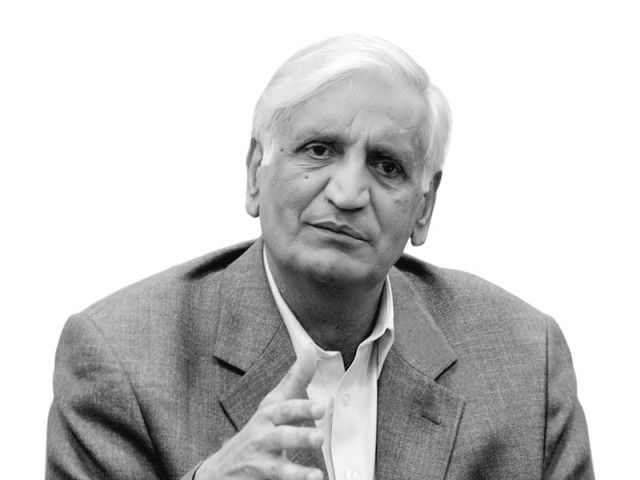The physical cost of an ideological conflict
With parliamentary elections just around the corner, political campaigning won't be an easy task for ANP in K-P.

Being a secular political entity, the Awami National Party (ANP) is destined to face terrorist attacks.
After assuming power in Khyber-Pakhtunkhwa in 2008, the party chose to fight militancy which had already seeped into various parts of the province from neighbouring tribal regions.
Since then, the party has topped the hit list of Taliban militants. It is the only political force to not only have adopted a clear stance on how to tackle militancy, but also demand military operations in Malakand Division, particularly in Swat.
A crackdown against militants in Frontier Regions (FR) and the adjacent areas of Peshawar district were carried out during its tenure. The party was ultimately criticised for ignoring development work, but its leadership said they were fighting a ‘great war’ for the safety of their soil – and that would have repercussions.
With parliamentary elections just around the corner, political campaigning is not going to be an easy task for ANP in the militancy-hit province.
Leaders and workers of other parties, including Jamaat-e-Islami (JI), Jamiat Ulema-e- Islam-Fazl and Qaumi Watan Party have also been targeted by militants in the past. However, the ANP is arguably their prime target.
The party has already lost two MPAs to militancy: Dr Shamsher from Swat and Alamzeb from Peshawar. And now senior minister Bashir Ahmed Bilour has become a victim of this conflict.
Whether the ANP still opt for public gatherings, seems to be the question at the moment.
The ruling Pakistan Peoples Party, which is an ally of the ANP, is reluctant to stand by it in the upcoming elections. So are other parties such as the PML-N, JI and JUI-F.
In another recent attack on an ANP gathering, militants targeted a convention in Charsadda on December 11. Two policemen and eight party workers were injured in the attack, but ANP chief Asfandyar Wali and the K-P chief minister decided to address the participants regardless.
A day after the blast, Tehreek-e-Taliban spokesperson Ehsanullah Ehsan warned that attacks on secular outfits would continue.
However, the ANP was determined to make its presence felt.
In response to the TTP’s threats in the wake of the December 11 attack, K-P information minister Mian Iftikhar Hussain termed it an attempt to demoralise the party. He, however, clarified the party could not be deterred from political campaigning.
“We will hold public meetings and rallies and they (militants) cannot stop us,” said Iftikhar, who has lost a son in a militant attack in Nowshera.
When the party was deprived of one of its senior politicians Bashir Bilour, Mian Iftikhar again highlighted ANP’s relentless resolve. He said it was the 25th consecutive public gathering to be addressed by Bilour.
But while the party’s leadership, including its chief Asfandyar Wali, has vowed to remain active in the public sphere, the coming days will be an indication of how the ANP expects to organise conventions and ensure attendance.
The ANP must now tone down either its criticism of militants or campaigns for mobilising people.
“Everyone knows very well that the ANP has always raised its voice against militants. And its leaders and workers never bow their heads to them, nor will we bow down in the future,” were the words of Bilour when he condemned the December 11 attacks a mere 10 days earlier.
A majority of the party’s activists are based in the northern parts of the province, including Peshawar, Charsadda, Mardan, Nowshera and Swabi, where workers throng public events despite repeated threats.
The upcoming general elections will serve as a litmus test for the party. Can it brave the assaults and emerge victorious against the belligerence of militants?
Published in The Express Tribune, December 23rd, 2012.





1724319076-0/Untitled-design-(5)1724319076-0-208x130.webp)













COMMENTS
Comments are moderated and generally will be posted if they are on-topic and not abusive.
For more information, please see our Comments FAQ